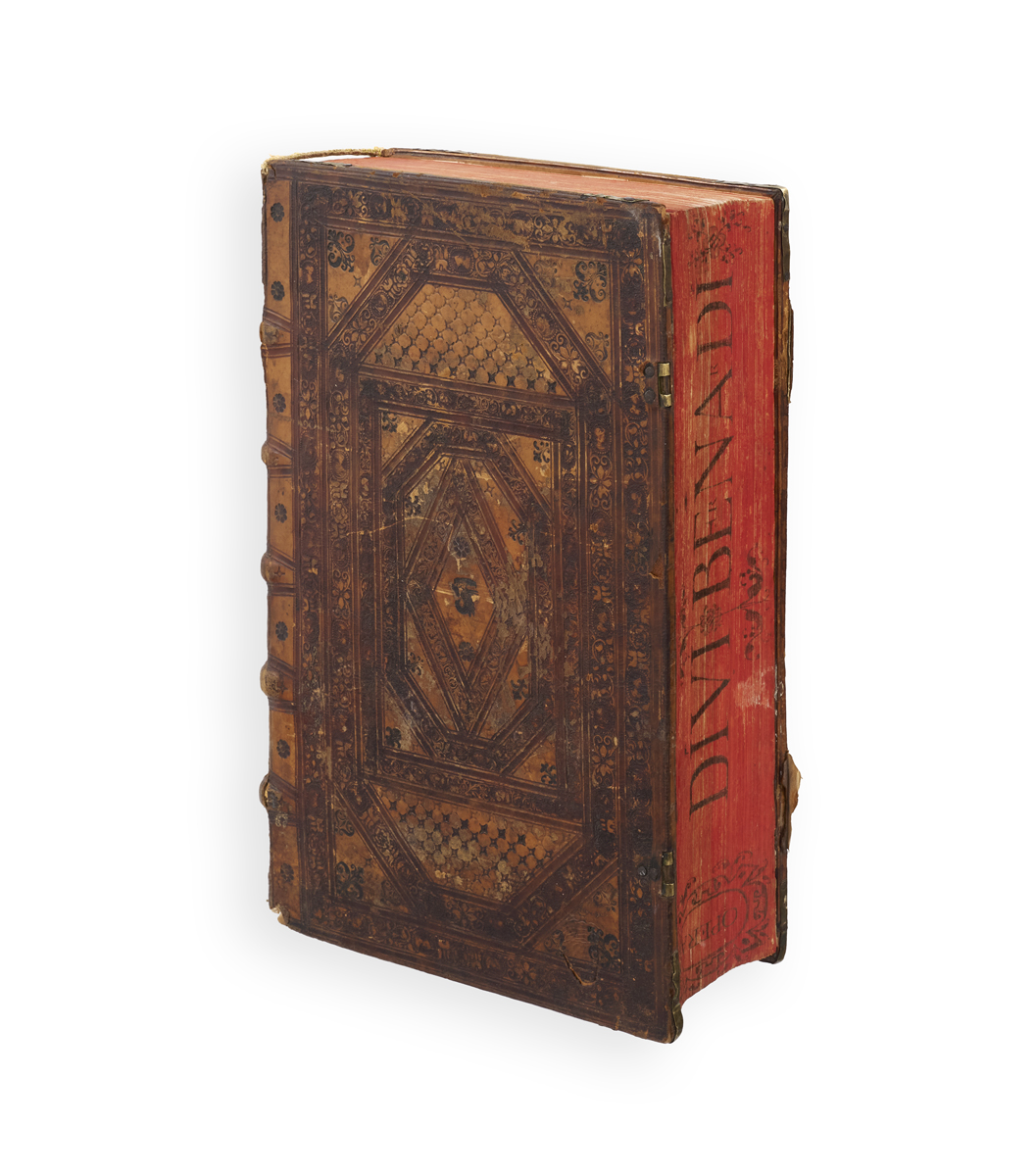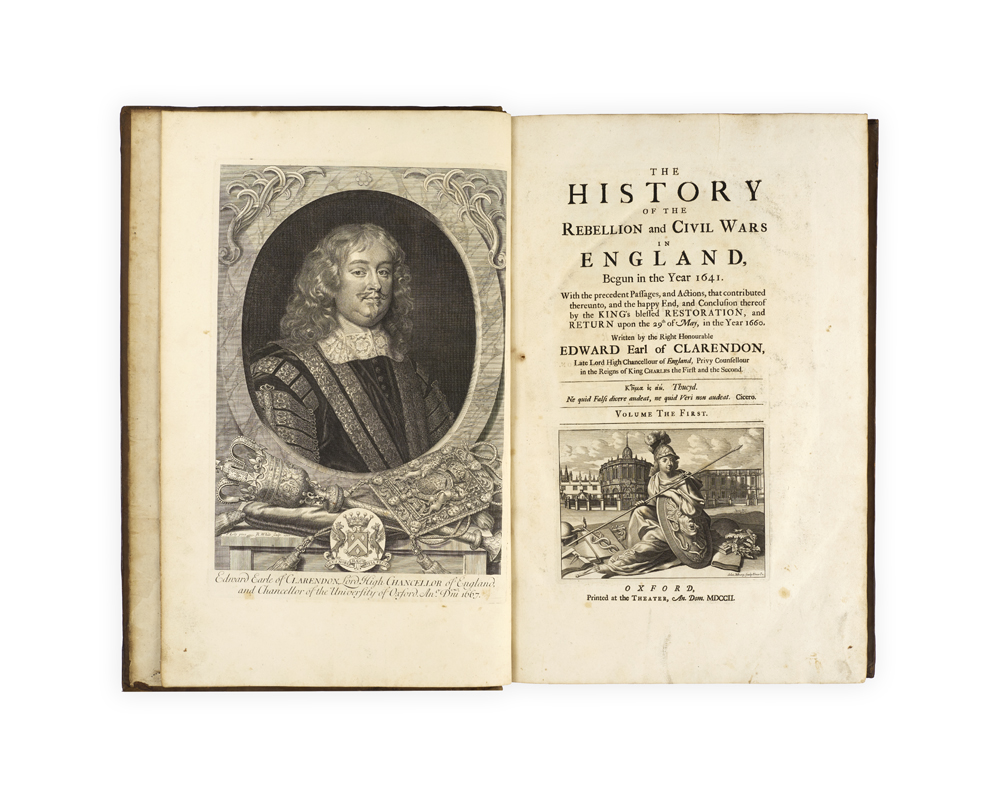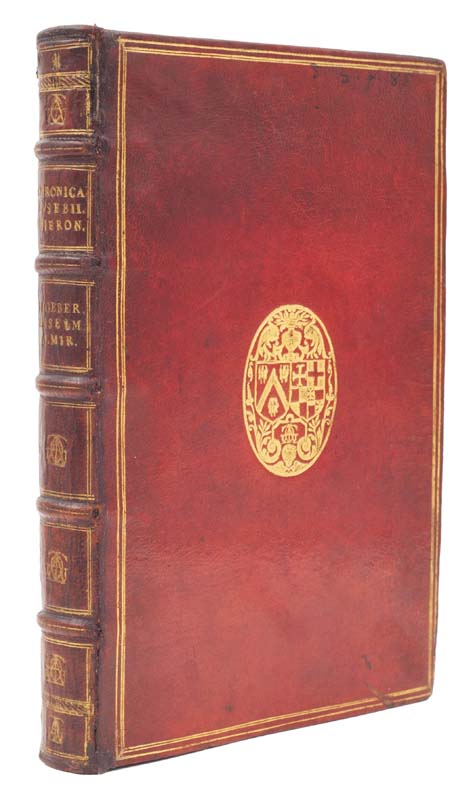
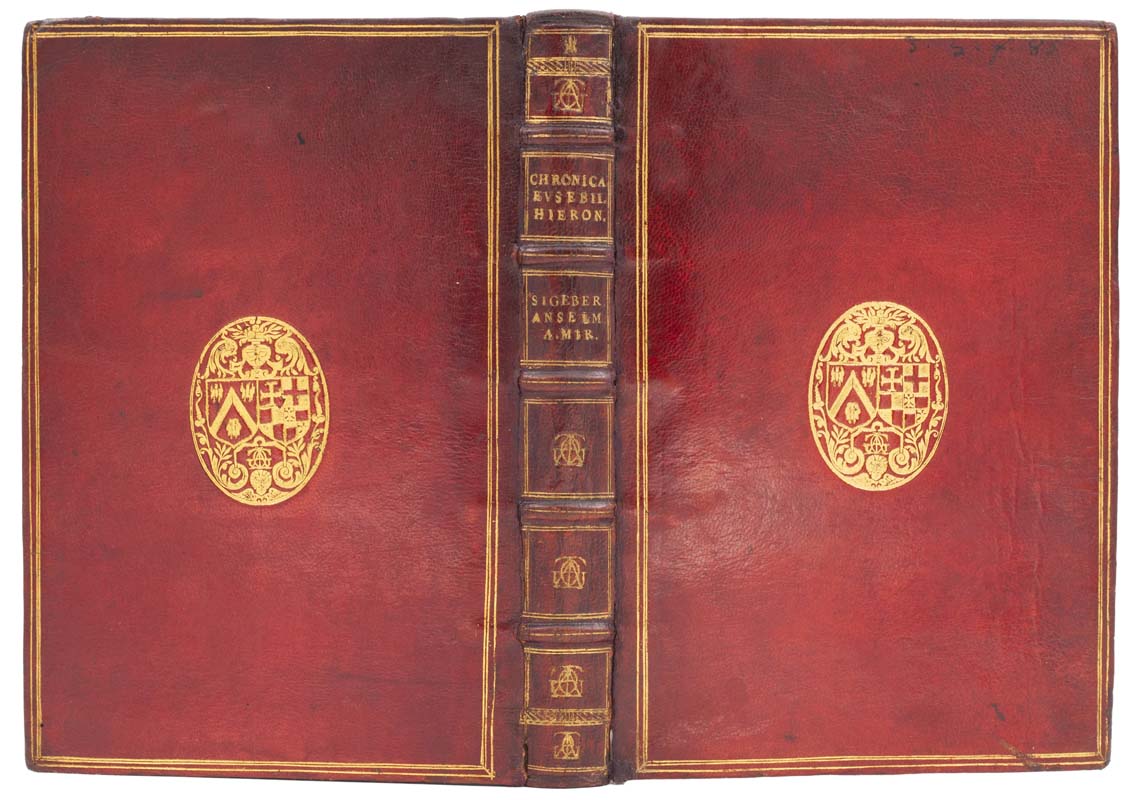
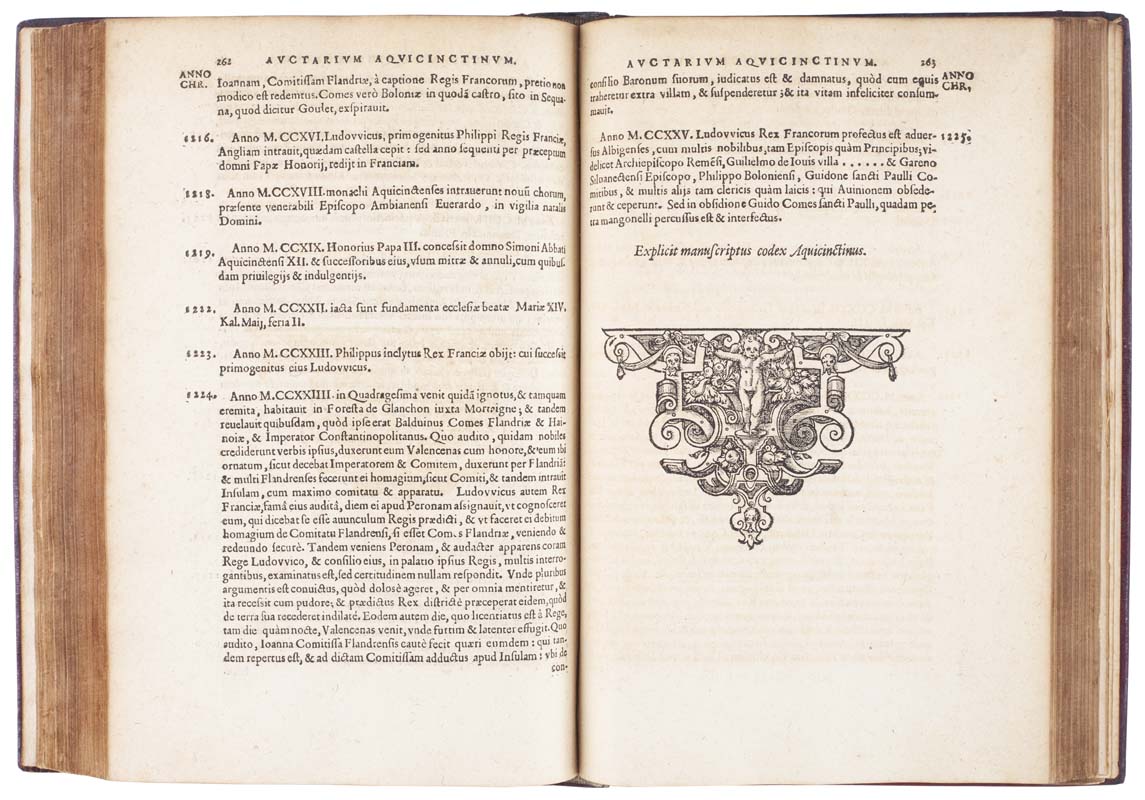
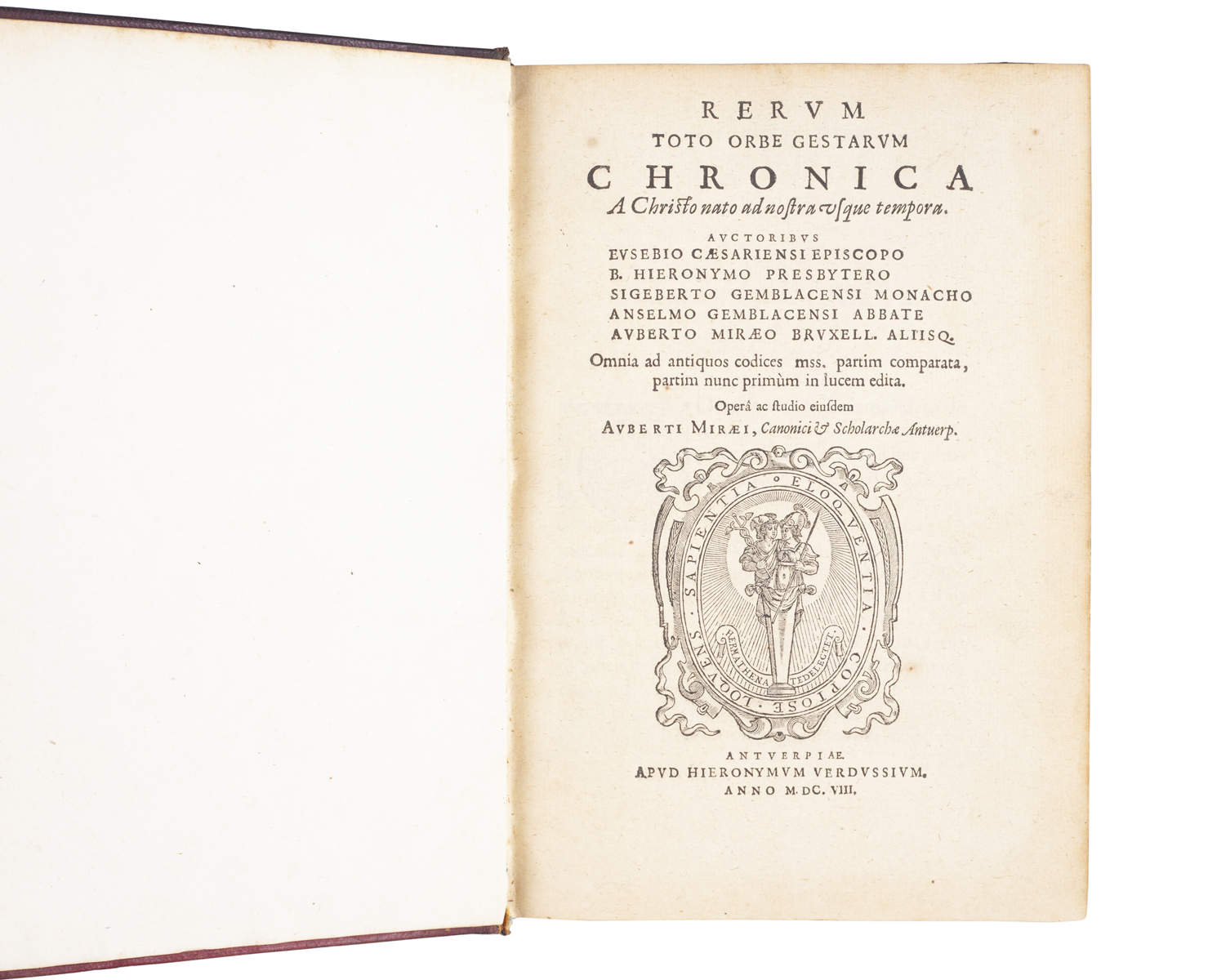
FROM DE THOU'S LIBRARY
LE MIRE, Aubert (editor).
Rerum toto orbe gestarum chronica a Christo nato ad nostra usque tempora. Auctoribus Eusebio Caesariensi episcopo, B. Hieronymo presbytero, Sigeberto Gemblacensi monacho, Anselmo Gemblacensi abbate, Auberto Miraeo Bruxell. aliisq[ue]. Omnia ad antiquos codices mss. partim comparata, partim nunc primum in lucem edita ...
Antwerp, apud Hieronymum Verdussium, 1608.
4to, pp. [88], [8], ‘120’ [recte 420], [4 (index)], with main title and three divisional titles; woodcut devices to three of the titles, initials, tail-pieces; slight paper flaw to A2, slightly toned; very good in contemporary red morocco, triple gilt fillet border to covers, spine gilt in compartments, direct lettered in two, edges gilt; a little worming at foot of spine, some wear to joints, corners and edges; from the library of Jacques Auguste de Thou, with his gilt arms impaling those of his second wife Gasparde de la Chastre to covers, and gilt monogram to spine compartments, ‘3. C. P. T. 3. F. 85’ inscribed in ink to front pastedown.

Added to your basket:
Rerum toto orbe gestarum chronica a Christo nato ad nostra usque tempora. Auctoribus Eusebio Caesariensi episcopo, B. Hieronymo presbytero, Sigeberto Gemblacensi monacho, Anselmo Gemblacensi abbate, Auberto Miraeo Bruxell. aliisq[ue]. Omnia ad antiquos codices mss. partim comparata, partim nunc primum in lucem edita ...
First edition of this collection of chronicles, covering sixteen hundred years of world history from the birth of Christ to its publication, composed by the ecclesiastical historian Aubert le Mire of Brussels, this copy from the library of Jacques Auguste de Thou.
The volume opens with Eusebius of Caesarea’s chronicle to the year 329 AD, with St Jerome’s supplement to 381. This is followed by Sigebert of Gembloux’s medieval Chronicon covering the period between 381 and 1112, with additions up to the year 1225 by Anselm of Gembloux and others. The final part comprises Le Mire’s own chronicle (‘ex vetustis scriptoribus’) from 1200 to 1608, ending with an index directing the reader to passages relating to, for example, Jerusalem and Rhodes, numerous emperors, kings and popes, religious and military orders, plagues and earthquakes, and the invention of printing, which is discussed at length under the year 1440. A pupil of Justus Lipsius, Le Mire (1573–1640) enjoyed a successful ecclesiastical and diplomatic career, and wrote prodigiously, particularly on monastic orders and Belgian history.
Provenance: Jacques Auguste de Thou (1553–1617), friend of Montaigne, president of the Parlement de Paris, historian, and book collector, who served as canon at Notre Dame and played a central role in the life of the French church. He was one of the negotiators of the Edict of Nantes, and spoke against the principles established in the Council of Trent on behalf of the Gallican Church. His library numbered around thirty thousand books and was famed as the most splendid of its time. After de Thou’s death, it was acquired by the Marquis de Ménars, then sold to the Cardinal of Rohan in 1706 and inherited by the Cardinal’s nephew, the Prince of Soubise.
Le Mire is known to have corresponded with de Thou, and may well have visited de Thou’s library during his diplomatic mission to France in 1609, when he found time to tour numerous notable Parisian collections.
USTC 1003327.
